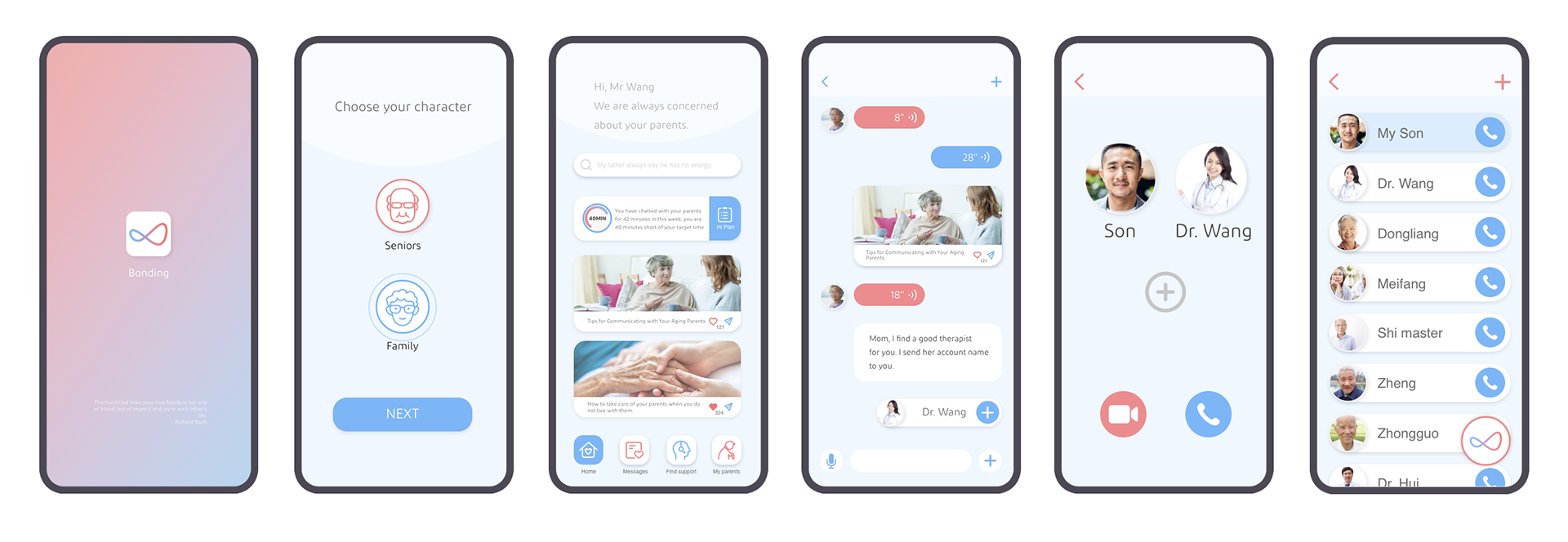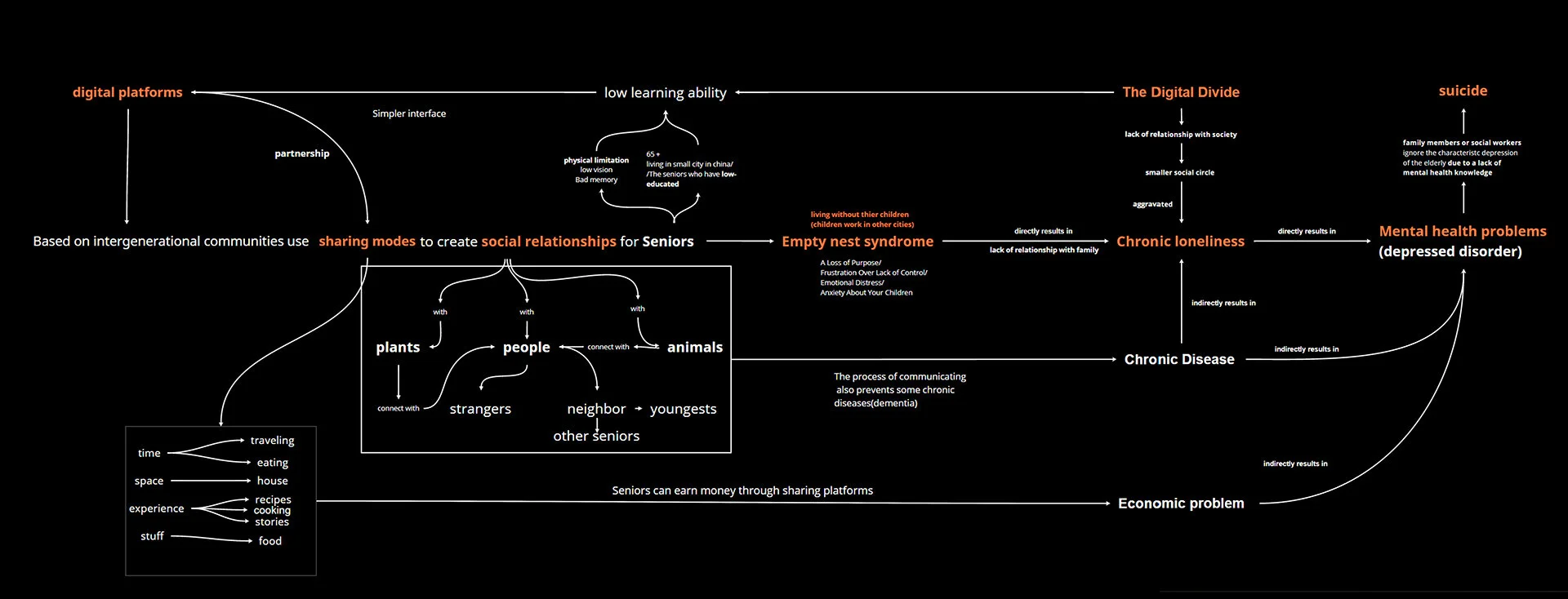Bonding: a Mental Health Consultant App for Seniors and Their Family
For cultural reasons, many Chinese seniors do not have the willingness to actively seek psychological treatment.
Bonding is a mental health consultant platform for Chinese seniors suffering from depression, and for their children who want to support them. Joey Hang Yuan designed the app as part of his MFA thesis, which focuses on redesigning experiences to keep older adults engaged in social relationships despite the digital divide.
Unlike other consultant apps, Bonding has a designated section to support family members as they guide their elderly loved ones through the mental health treatment process. First, family members download the Bonding app and fill in the necessary information. Let’s take a look at how this works:
After the initial Bonding app setup, the senior user inputs their family member's number and the platform will automatically match the two accounts, syncing all their information. The operation modes are more straightforward and easy to use than in standard apps—it’s been specifically designed for the elderly who might suffer from eyesight problems. Let’s take a look at how the interface looks from the senior user’s perspective:
Before beginning the service, Bonding requires both the senior user and their children to complete a short mental health evaluation. After this assessment, Bonding provides treatment suggestions, and both users are given the option to choose therapists to start the consultant process. One of the main aims of the platform is to encourage dialog and understanding between family members around mental health issues.
Through his research, Joey found that approximately 37.17–54.63 million Chinese seniors suffer from depression. By comparison, China only has 20,000 psychotherapists. While the Chinese government is committed to expanding mental health care services and legislation, the country struggles with a lack of mental health professionals and access to specialists in rural areas. To make matters even more complicated, Joey says that "for cultural reasons, many seniors do not have the willingness to actively seek psychological treatment. Many people believe that mental illness is a stigma."
China also has the world's largest population of seniors. The United Nations projects that there will be 366 million older Chinese adults by 2050, which is substantially larger than the current total U.S. population (331 million). At the same time, it also has the most significant number of elderly empty-nesters (meaning parents whose children have grown up and left home). In one study it was estimated that, by the end of 2020, Chinese empty-nest elders will reach 118 million.
The United Nations projects that there will be 366 million older Chinese adults by 2050, which is substantially larger than the current total U.S. population (331 million).
Not surprisingly, compared to those living with children, empty-nest elderly have poorer physical and mental health, greater dissatisfaction with their health and income, lower quality of life, poorer sleep quality, and more loneliness—all of which may increase the risk of depression. “People are enthusiastic about the rapid economic rise," Joey says. "However, I am concerned about this marginalized group of elders suffering from loneliness—they are at risk of being ignored." Bonding is part of a suite of projects in Joey’s thesis, that aim to fill this gap and create more opportunities for the younger generation to connect with seniors.


